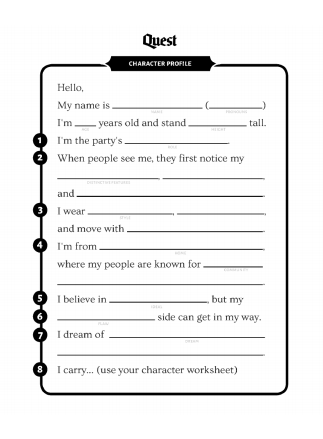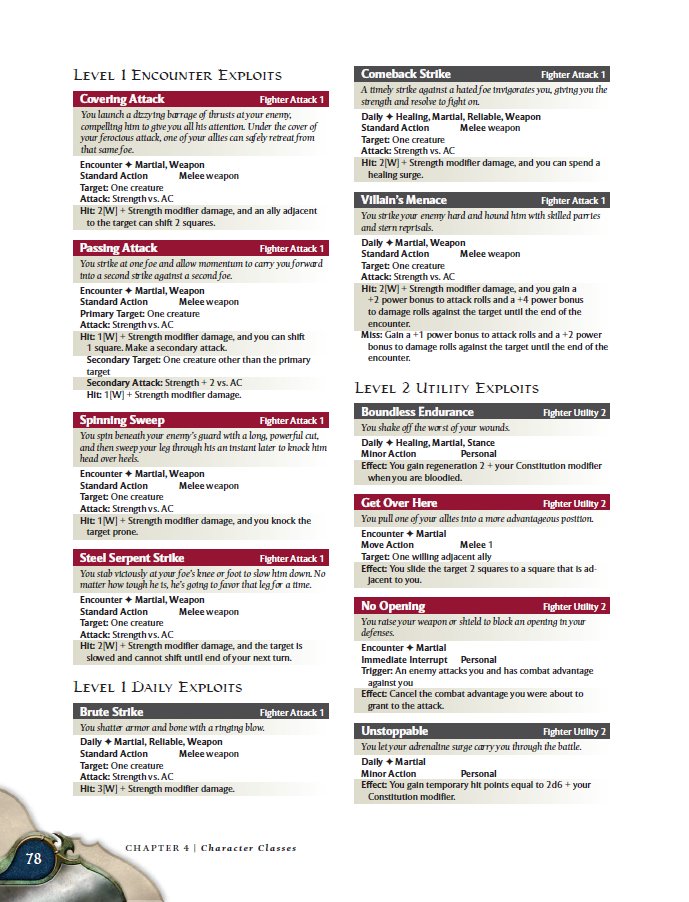I think with the current TTRPG discourse, it& #39;s a good time to talk about accessibility in games.
Because people often talk about it like it& #39;s a linear scale, with story games on one end and D&D on the other, but that& #39;s just not the case.
Because people often talk about it like it& #39;s a linear scale, with story games on one end and D&D on the other, but that& #39;s just not the case.
There& #39;s different types of accessibility.
There are games with a lot of math, but the options available during play are really clear.
There are games where the GM has to remember a lot of information, but GM doesn& #39;t have to improv much during the session.
There are games with a lot of math, but the options available during play are really clear.
There are games where the GM has to remember a lot of information, but GM doesn& #39;t have to improv much during the session.
Accessibility even varies a lot from player to player. For some players, asking "What do you look like" is a much more difficult question than, "What& #39;s your class?"
For GMs, having a lot of rules to fall back on is a blessing for some and curse for others.
For GMs, having a lot of rules to fall back on is a blessing for some and curse for others.
One of the first times I ran a game, I ran Lasers & Feelings, a game I thought would be accessible because it was only one page.
It& #39;s a brilliant game with wonderful design, but I had no idea how to play the game. Ended up being really disappointing.
It& #39;s a brilliant game with wonderful design, but I had no idea how to play the game. Ended up being really disappointing.
Meanwhile, if I had run D&D, all I would have done is get a module and follow the steps there. I, and my players, would have probably had a much better time because D&D is a very accessible system... for a certain type of player.
The notion that D&D can run everything came about partially because it& #39;s easy to run any story in D&D (as long as it has combat). Take any story from anything, add combat encounters to it, and players will have fun at the table (because combat in D&D in inherently fun).
Romeo & Juliet? Capulets and Montagues are fighting a proxy war with demons summoned from other dimensions. Fight through them to deliver messages between Romeo & Juliet.
Hamlet? Assassins are trying to kill Hamlet. Defend him long enough for him to enact his revenge.
Hamlet? Assassins are trying to kill Hamlet. Defend him long enough for him to enact his revenge.
But if your campaign stops centering around combat, the mechanics you use, how you engage with them, and why your game is *fun* fundamentally changes. For certain tables, that means you have to do more work to get what you want. For others, it& #39;s less work to get what you want.
All of this to say, some players are going to look at Quest RPG& #39;s character profile and be completely frozen.
Those same players may look at D&D 4e& #39;s powers and go, "Oh yeah, this is all pretty simple to understand."
Those same players may look at D&D 4e& #39;s powers and go, "Oh yeah, this is all pretty simple to understand."
Want to end this thread with one final story that pretty much sums this up. The first time I ran Dungeon World, the group was mostly newbies with a couple of D&D& #39;ers.
Character creation was going pretty smoothly, but then I saw one of them struggling really hard with his sheet.
Character creation was going pretty smoothly, but then I saw one of them struggling really hard with his sheet.
I asked what the issue was, and finally, out of frustration, he asked, "What& #39;s the difference between a warhammer and a mace?"
The game no indication why that would matter, and he wanted to make sure he was making his character right.
The game no indication why that would matter, and he wanted to make sure he was making his character right.

 Read on Twitter
Read on Twitter



